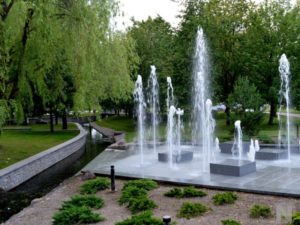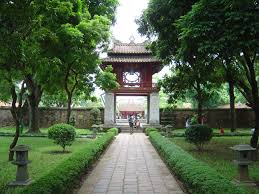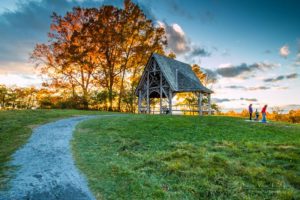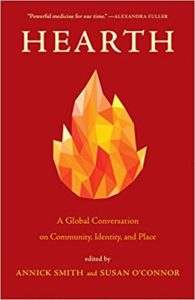
“A human being is a part of the whole called by us universe, a part limited in time and space. He experiences himself, his thoughts and feelings, as something separated from the rest, a kind of optical delusion of his consciousness. This delusion is a kind of prison for us, restricting us to our personal desires and to affection for a few persons nearest to us. Our task must be to free ourselves from this prison by widening our circle of compassion to embrace all living creatures and the whole of nature in its beauty.” Albert Einstein
My son-in-law once told me he didn’t see the purpose in poetry. He said it didn’t serve any useful function, as far as he could see. This article is, in part, an answer to his questioning about the reason for poetry.
As Yeats said, “Out of arguments with others comes rhetoric; out of arguments with ourselves comes poetry.”
(The following two paragraphs are from a 2018 interview in Sisyphus Lit Mag “Living with Low Vision.”—Ed.)
It is important to back up and think about where we are. If you think about what we have done as a species, when you know how we interpret what is outside of our “bony domes,” it is amazing. It is amazing that we have created mathematics to study the world, astronomy to see it, art to emulate the experience. As a species, we have reached out and touched the world in remarkable ways, figured out how to manipulate and use it, for better or worse. But, in the meantime, we have left behind something important. We have been inventing this world we live in: invented languages to describe it, invented telescopes to see it, invented vehicles to circumnavigate it, invented religions to give us comfort, and invented politics and governments to give us a sense of control, and yes, invented weapons of mass destruction. We forgot to understand what it means that we made it all up. Meaning is human-made. It is not built into reality, but a part of our human world. We engage in atrocities and war because we forget that all understanding is human invention. And these inventions can lead us into a true hallucination that has dangerous and disastrous implications. Or maybe we can wake up and realize who we are, who we have been, and where we are going. The beauty that remains to us lies in our art, our music, and our ability to create as part of the ecosystem on this magical planet we call Earth.
How much of daily life is caught up in following beliefs that are false and may not even be our own? Our collective truths are determined by politics, our ethnic tribal alliances or misinterpretations of what was told to us in our childhood. Personally, I have received some relief through the practice of mindful communication. Mindfulness makes a huge difference in relocating oneself and the world. From a mindfulness perspective, your historical story is a fabrication, is made up, is unreliable as a guide to future ways of being in the world. You understand compassion because you are able to let go of attachments to your story, your Narrative Self, and realize your filters are flawed. You must come to grips with the reality you are living in, rather than the reality you want it to be. This was a profound revelation for me, that my “story” is a construct of my brain and subject to modification as information becomes available.
As Jane Hirshfield so aptly states, for me, “poetry practices in language what meditation practices in silence.” Sometimes I think we have forgotten how to look within in order to find what’s real, what’s not, an overlay of a dysfunctional time in our culture.
In spite of William Carlos Williams saying that “people die miserably every day for the lack of [it],” there really is no purpose to poetry. It’s not about purpose. It’s about a world of waking up in which one comes to an understanding that the world is not as straightforward as one might think. Historically, the English word poet comes from the Greek word, poiesis, for “making.” The poet is considered a maker or a creator: a creator of emotional realities. Several scholars enjoy the notion that the ideograph for poetry in Chinese (shī 诗) is comprised of the characters for “temple (sì 寺)” and “word (yán 言).” While sinologists are likely to dispute the accuracy of these etymological interpretations, I like the concept of poetry as a Temple of Words in which the poet is the High Creator. One might put these two concepts together and conclude that poetry is about making real an emotional reality that can be shared, and a congregation where one comes to a temple of words to share with people who are willing to stop what they are accomplishing and listen for what is.

“Poetry is serious business,” as Rainer Maria Rilke says, and the reason we need such serious business is because we, in our current and contemporary life, are divided among ourselves because we are divided within ourselves. We are desperately in need of returning to an inner self that takes life seriously and allows us to regain the lyric of our private life.
I recently read an anthology of poetry titled Hearth. “A hearth is many things:” says the foreword, “a place for solitude, a source of identity…a history of ourselves and our homes….It is, in short, the perfect metaphor for what we seek in these complex and contradictory times—set in flux by environmental emergencies and economic violence, by the refugee crisis and large-scale migration, and by social disintegration and the dislocating effects of technology.”
Mark Treddinick’s essay in Hearth is an inspiring wordplay. “Hearth contains ‘earth’ and ‘heart’ and ‘hear’ and ‘art’… to return to health is etymologically related to ‘whole’…Self is a hearth you make and keep making, like a fire…Selving is the work of re-membering all that you are.”
Poetry becomes necessary when one experiences “the shattering of self … the loss of life’s lyric. A self and a world evacuated of all meaning for a time,” as happens in periods of depression or crisis: divorce, loss or death of a loved one, an existential challenge to a person’s understanding of themselves. Treddinnick’s essay relates his coping mechanism for personal crisis.
But our species is facing the existential crisis of climate change looming on the horizon. We have elected a Mad King engaged in disinformation and gaslighting—“facts” and “truth” are subjective and our information systems are vilified. Water and food and medicine are sometimes safe and sometimes not. We are imbalanced and tribalized. We are living in and through the Information Age with concepts like big data and technological pleasures and yet none of it brings us back into the world. It leaves us “un-hearth-ed,” afraid of the rivers that won’t stay in their banks and the fires that refuse to be controlled and the angers that refuse to be less dangerous.
The world is too much with us; late and soon,
Getting and spending, we lay waste our powers;—
Little we see in Nature that is ours;
We have given our hearts away, a sordid boon!
This Sea that bares her bosom to the moon;
The winds that will be howling at all hours,
And are up-gathered now like sleeping flowers;
For this, for everything, we are out of tune…
—William Wordsworth, “The World is Too Much with Us”
“…survival happens in two ways in the making of a poem,” Gregory Orr opines, “first we shift the experiences a ‘bearable distance’ from us into the world of language; second, the poet has ‘made and shaped’ her experience into a form, has brought order to disorder, rather than ‘passively’ enduring it… they emerge from crises: falling passionately in love, or losing love, or situations of grief and confusion. I wouldn’t say they’re always written while the crisis is happening—but for dramatic purposes they tend to locate themselves in that crisis moment, and that’s when we, as readers, most need poems, during our crises. We need poets when we’re deliriously happy, and the delirium threatens our stability, when we’re crazy with love. We need them when we’re crazed with grief and despair—then they’re a momentary stay against our confusion, a momentary clarification. Then they have the power to re-stabilize us.”
Galway Kinnell held that it was the job of poets to bear witness. “To me,” he said, “poetry is somebody standing up, so to speak, and saying, with as little concealment as possible, what it is for him or her to be on earth at this moment.”

A poet is a seeker, a seer, a witness. For me, poetry is closer to the sense of smell than it is to the art of discourse. It is more a way of feeling with someone than talking to someone; a way of reclaiming a shared inner sense of the world.
“So you must not be frightened if a sadness rises up before you larger than any you have ever seen; if a restiveness, like light and cloudshadows, passes over your hands and over all you do,” counsels Rilke in Letters to a Young Poet. “You must think that something is happening with you, that life has not forgotten you, that it holds you in its hand; it will not let you fall. Why do you want to shut out of your life any uneasiness, any miseries, or any depressions? For after all, you do not know what work these conditions are doing inside you.
“It seems to me that almost all our sadnesses are moments of tension, which we feel as paralysis because we no longer hear our astonished emotions living. Because we are alone with the unfamiliar presence that has entered us; because everything we trust and are used to is for a moment taken away from us; because we stand in the midst of a transition where we cannot remain standing. That is why the sadness passes: the new presence inside us, the presence that has been added, has entered our heart, has gone into its innermost chamber and is no longer even there, – is already in our bloodstream. And we don’t know what it was. We could easily be made to believe that nothing happened, and yet we have changed, as a house that a guest has entered changes. We can’t say who has come, perhaps we will never know, but many signs indicate that the future enters us in this way in order to be transformed in us, long before it happens. And that is why it is so important to be solitary and attentive when one is sad: because the seemingly uneventful and motionless moment when our future steps into us is so much closer to life than that other loud and accidental point of time when it happens to us as if from outside. The quieter we are, the more patient and open we are in our sadnesses, the more deeply and serenely the new presence can enter us, and the more we can make it our own, the more it becomes our fate.”

Poetry brings the world back into the living, reconciles the dissonances in our disparate understandings that have grown up in the Holocene/Anthropocene era. There is a “perpetual slow-burning emergency to the unhoused self,” says Treddinick. “Art – letting rhythm and metaphor rock me back to the world beyond my head – can become a hearth you can dwell by, a tent and fireplace under stars, while you wait your homelessness out.”
Poetry is the plea to come back to the heart-h, to eschew politics, religion, profit-and-loss, to leave behind the dystopic world and xenophobic philosophies. Poetry has nothing to do with beliefs, but it does have something to do with meaning though the music and magic of words. Poetry is a call to return to nature, meaning our nature:
…Ah, love, let us be true
To one another! for the world, which seems
To lie before us like a land of dreams,
So various, so beautiful, so new,
Hath really neither joy, nor love, nor light,
Nor certitude, nor peace, nor help for pain;
And we are here as on a darkling plain
Swept with confused alarms of struggle and flight,
Where ignorant armies clash by night.
—Matthew Arnold, “Dover Beach”
For me, there is also something about this act of sharing that is, in part, a process of self- discovery. It is a locating of a “self that sees,” a witness. In my own poems there is an inner “self,” a muse, that rises up from the pool of my subconscious mind, from my leaf-mold memory, that allows me to find the exact right sound or word I need to make the poem work. And this discovery of a “self that sees” is a joy that fills and sustains me and remains one of the major reasons I write poetry. It’s also one of the ways I am able to discover my inner self, my guiding self, my historical self. I lose track of who I am when I get too far away from poetry.
…The seasons proceed,
and we reach inside each other,
begin living in a new kind
of weather.
You live now only in my most inward life,
spread out, like pieces of shell at the shore.
—Charles Entrekin, “To Remember You”
“I believe in the spiritual,” says Orr, “but being a lyric poet trumps both philosophy and religion for me as a source of meaning. Being a lyric poet is like being given your own giant scroll. You unroll it and discover that it’s blank, but it has the potential to be a star chart. As a poet, you put the stars on it yourself. Each time you write a poem you’re making a meaning, placing a point of light on this blank chart, dotting it over time with your own meanings, your own stars. You’re making an image of a night sky on the scroll…Stars in the night sky have a kind of wonder and beauty, but they’re a systemless system. You feel awe and wonder at them, but they don’t all hold together. Religion, philosophy—those seem to me to be systems that try to become internally coherent, arrange themselves into one huge constellation, but what I love about lyric poetry is that, like the stars, it’s just an array. It’s an open system that’s mysteriously radiant with significance.”
And Orr considers a metaphor about all of the creation of humankind, from our cave paintings to our Instagram broadsides, part of the collective human creative process, a sort of existential anthology of our species. “The Book I am imagining is a gigantic anthology filled with every poem and song ever written. All poems and songs feed into it. The Book is an ultimate jukebox, an iPod as big as the moon from which each person can download that playlist that will help them live. We go to it not for entertainment (as the jukebox or iPod metaphor might imply) but to find the words we need to sustain us.”
Poetry is a kind of non-dual universal sharing of a reality that can be transmitted via words, the paradox between the silence of our introspections translated into language. Lyric is our nature, our instinct. A tick’s existence relies on heat—it lives in hibernation until a dog walks by that it recognizes as a source of sustenance. The dog, in turn, relies on its sense of smell to engage with the world. The dog’s master, Homo sapiens, rely on internal contemplation and articulation in language to express complex desires.
Rilke says in “Letters to a Young Poet,” that to be a poet means committing yourself entirely to an enterprise that requires you to find inside yourself the reason for writing the poem in the poem that emerges. It is an act of self-exploration, a revelation of a reality that is emotionally honest and authentic. “Poetry is a way of looking at the world for the first time,” says W.S. Merwin (1927-2019). It takes courage to reveal oneself on the page, but more than that, it takes vision and a commitment to honestly seeing what’s there, whether or not you recognize what you have discovered.
“I beg you, to have patience with everything unresolved in your heart and to try to love the questions themselves as if they were locked rooms or books written in a very foreign language. Don’t search for the answers, which could not be given to you now, because you would not be able to live them. And the point is to live everything. Live the questions now. Perhaps then, someday far in the future, you will gradually, without even noticing it, live your way into the answer.” ― Rainer Maria Rilke

